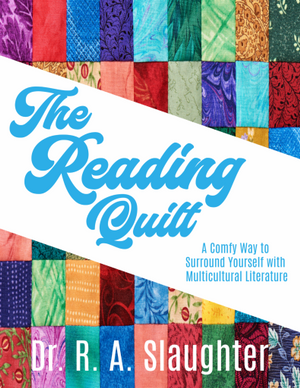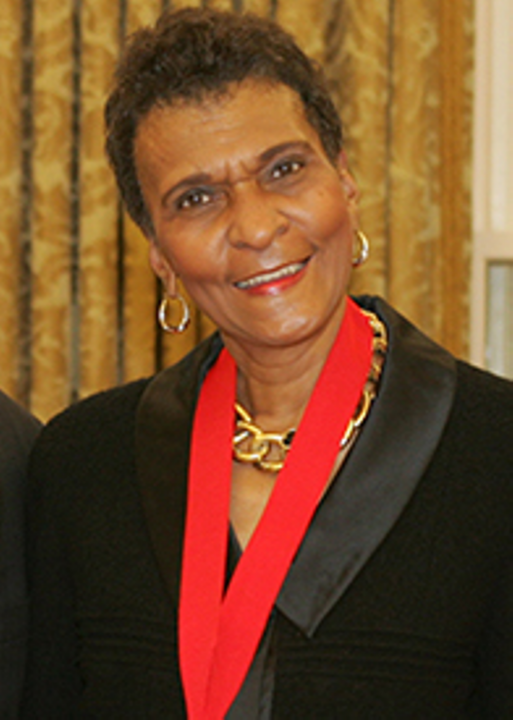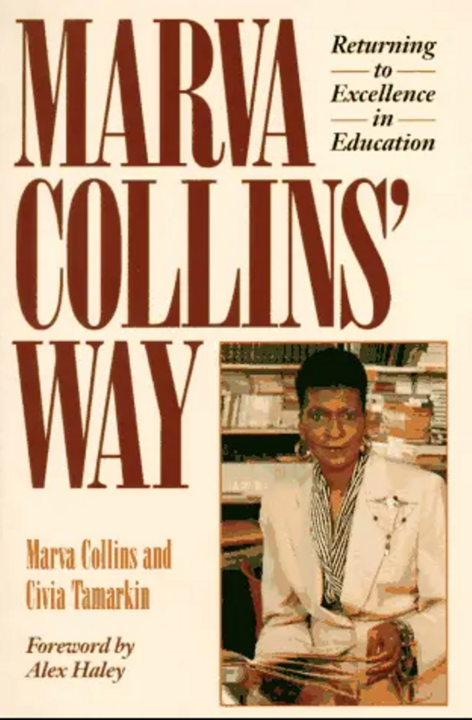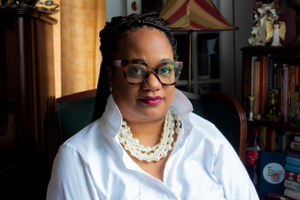
Back to School
Education is paramount: This is a famous and powerful maxim in the African American community. When we flip through the pages of African American history, we meet a host of academic activists who opened the doors for African American children to learn and discover our vast world. Notable twentieth-century scholars like Cornel West, Ta-Nehisi Coates, and Henry Louis Gates Jr. walked freely through academic halls paved by scholars like Dr. Cheikh Anta Diop, Dr. John Henrik Clarke, and Angela Davis.

“The Reading Quilt” provides a short synopsis of a book that a teacher may use to spark conversations about culture and race. This month “The Reading Quilt” shines a spotlight on the late Marva Collins, who worked passionately to help educate African American children who were dismissed as learning disabled, harmful, or unloveable. Often using her finances, Collins devoted her life to providing quality education to those most in need. Her book “The Marva Collins’ Way” was published in 1990.
Marva Collins

Image: Marva Collins. Source: Wikimedia Commons
Born August 31, 1936, in Monroeville, Alabama, Collins lived most of her 79 years as an advocate for children. Considered a pioneer in education, Collins is best known for opening Westside Preparatory School in the impoverished Garfield Park neighborhood of Chicago in 1975. It is her work at Westside Preparatory School that helped Collins’ develop a style of teaching that became known as the “Collins’ Method” with the hopes of offering an alternative to the substandard schools in the area.
Collins’ school, which she first opened in her home on a meager budget, was a space for her to teach young people to love learning. The curriculum celebrated philosophers like Homer and Plato and literary giants like Chaucer, who is considered “the Father of English literature.” Collins engaged students with scholarly lessons. The kids who were once considered “unteachable” were memorizing the words of great philosophers. Marva’s Way brought lots of media attention her way.
Soon, American Hallmark Hall of Fame movie producers were intrigued with Marva and offered her a chance to see her life on the big screen. With Morgan Freeman by her side, playing Collins’ husband and source of inspiration, Cicely Tyson portrayed Collins’ life of service in the 1981 television movie “The Marva Collins Story.” The movie immortalized Westside Preparatory School, which Collins ran in a separate building on Chicago’s South Side for more than 30 years until it closed in 2008.
Often invited to speak at public events, Collins was celebrated for her work in the education system. She received many prestigious awards and honorary doctorates from institutions like Amherst, Dartmouth and Notre Dame. In 2004, President Bush bestowed Marva Collins the National Humanities Medal. In her spare time, Collins wrote books about her experience as an educator. Collins died June 24, 2015.

Image: Cover design for Marva Collins’ Way. Source: Amazon.com
Remembering Marva Collins:
In 2009, Dr. Rachel Slaughter interviewed Marva Collins.
As a veteran educator and journalist, I was thrilled to meet Marva Collins at Plate Restaurant in Ardmore, Pa. (now defunct). When I met my academic idol, I had been teaching for nearly two decades, read her book a dozen times, and memorized Cicely Tyson’s lines in the 1982 television movie. Yes, I had done my “Marva Collins” homework. However, nothing could prepare me for the moment Collins stepped into plate with her entourage (members of Concerned Black Parents) and husband by her side. Collins was statuesque in her flowing pale-colored pants suit, short cropped hair, and distinctive jewelry. Once she passed the threshold, the clinking of wine glasses and din of voices muffled in awe, and the entire restaurant gave pause. For a second, I thought I had made a terrible mistake inviting this queen to Plate. I thought a lady of her refinement and grace might find it brash. Instead, Ms. Collins, in her voice reminiscent of a griot, absorbed the festive vibe and ordered a child’s mac and cheese because she didn’t want to break my budget. It was over mac and cheese and plates of hor d’oeuvres that Collins gifted us “pupils” with wisdom I treasure to this day.
Q- What are your thoughts on the high percentage of African Americans placed in special education?
A- Placing kids with so many specialists makes kids think they are sick…like there must be something wrong with them. In reality, kids often need special services to compensate for teachers’ ineptness. We beat kids down academically, which makes them think they are stupid.
Q- How can we help these at-risk students?
A- Every teacher talks about saving children. The teachers really need to save themselves first. The student reflects the teacher. If the teacher has personal problems, shortcomings, and limitations, the students will reflect those deficiencies. First, the teacher must bond with her student. Next, she must discuss with the student what mutual respect looks like. Students need to be treated like customers…with respect. For example, the teacher needs to know the mind of a teenager. But, the teacher does not need to argue with the student. In the classroom, I know that I am the master of the game. No kid can outwit me.
Q- Often, minority students are limited by financial barriers. How can we, as teachers, introduce these students to other worlds?
A- I create imaginary passports for my students to take them around the world. Teachers often concentrate on the wrong things. Let’s focus on what we can do. Let’s agree that we are going to travel and worry later about how to get there. Sometimes we are too busy pointing out deficiencies and lack (of money or materials). We must remember that everything is in a book.
Q- In many school districts, the demographics of the teaching faculty does not match the demographics of the study body, which often results in cultural bias. What are your thoughts on this situation?
A- You can look with disdain at a child, and they can tell when you are putting them down. In any case, kids need strong leaders. Not fakers. Sometimes the adults teach the kids one thing but do another. When you talk about excellence, the teacher has to be excellent too.
Q- There is so much wrong in public education which makes the teaching profession hard. Many teachers get frustrated and quit. What are your thoughts on this situation?
A- Before a teacher leaves her school, she should ask herself, ‘What have I done that is excellent where I am?’ If you can’t answer that, how can I trust where you say you are going? Every day I do something that will make me excellent and expand my mind. What did you do this year that would win the Teacher Academy Award? You can’t cheat others without cheating yourself. When you don’t explore excellence, you can’t be excellent.
Q- I know you believe at-risk schools can be turned around. But the obstacles that public educators face can be overwhelming.
A- The enemy wants you to think the problem is too big. The cup is half empty if you are going to drink from it. But it is half full if you are going to fill it up. Be optimistic. Think outside of the box. Be bold, innovative. What really matters is the children.

Dr. R. A. Slaughter’s (Doc) textbooks Turning the Page: The Ultimate Guide for Teachers to Multicultural Literature, and Turning the Page: A Guide to Securing Multicultural Literature for Schools, both published by Rowman & Littlefield and available in all bookstores, have brought Doc global recognition. For more information, log onto DrRachelSlaughter.info or check out “The Reading Quilt” talk show, every Monday, at 3:30pm on PhillyCam.





